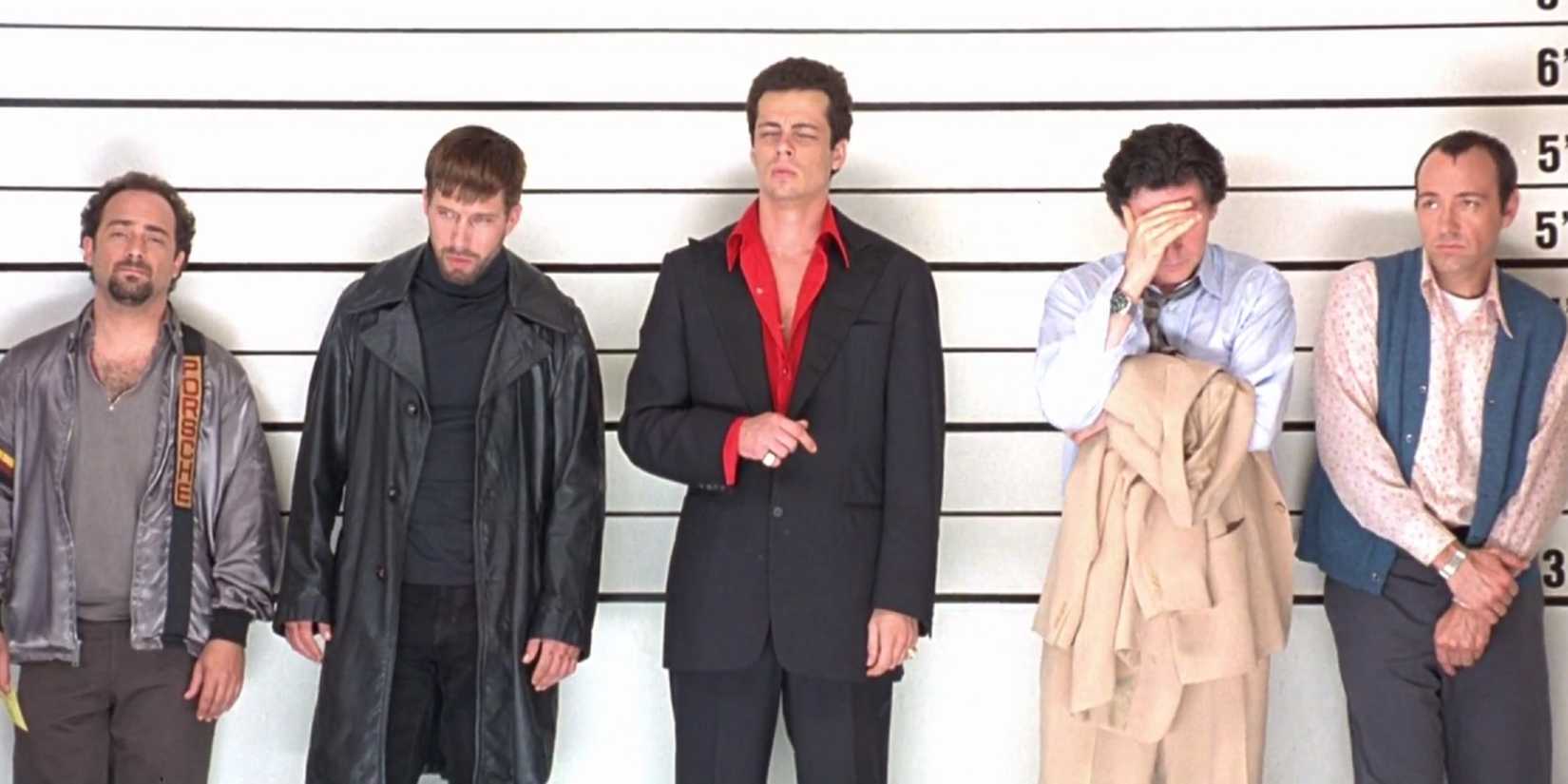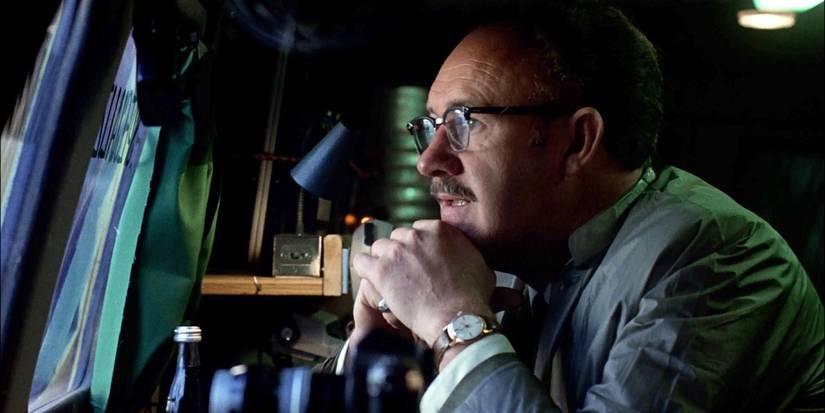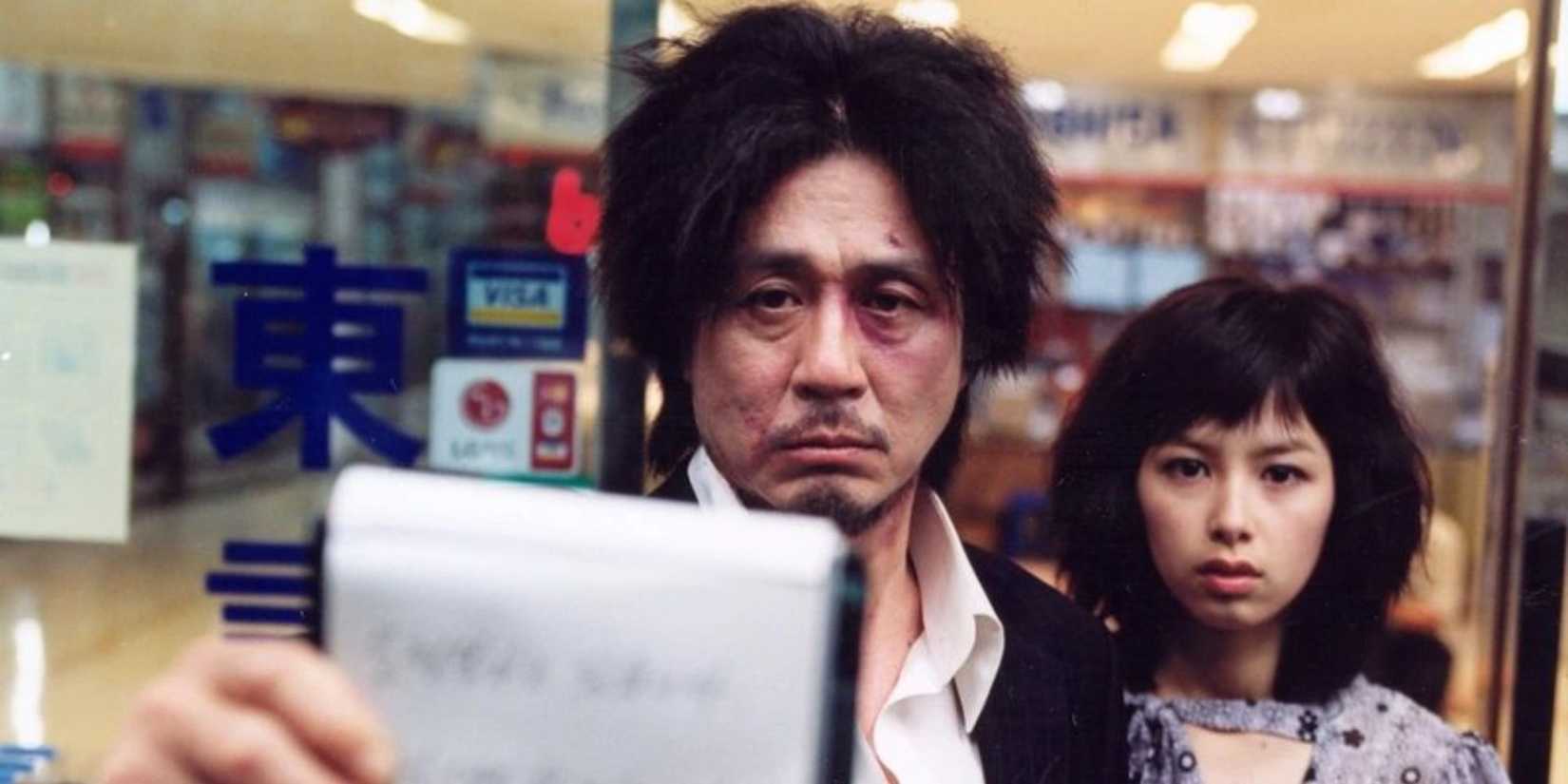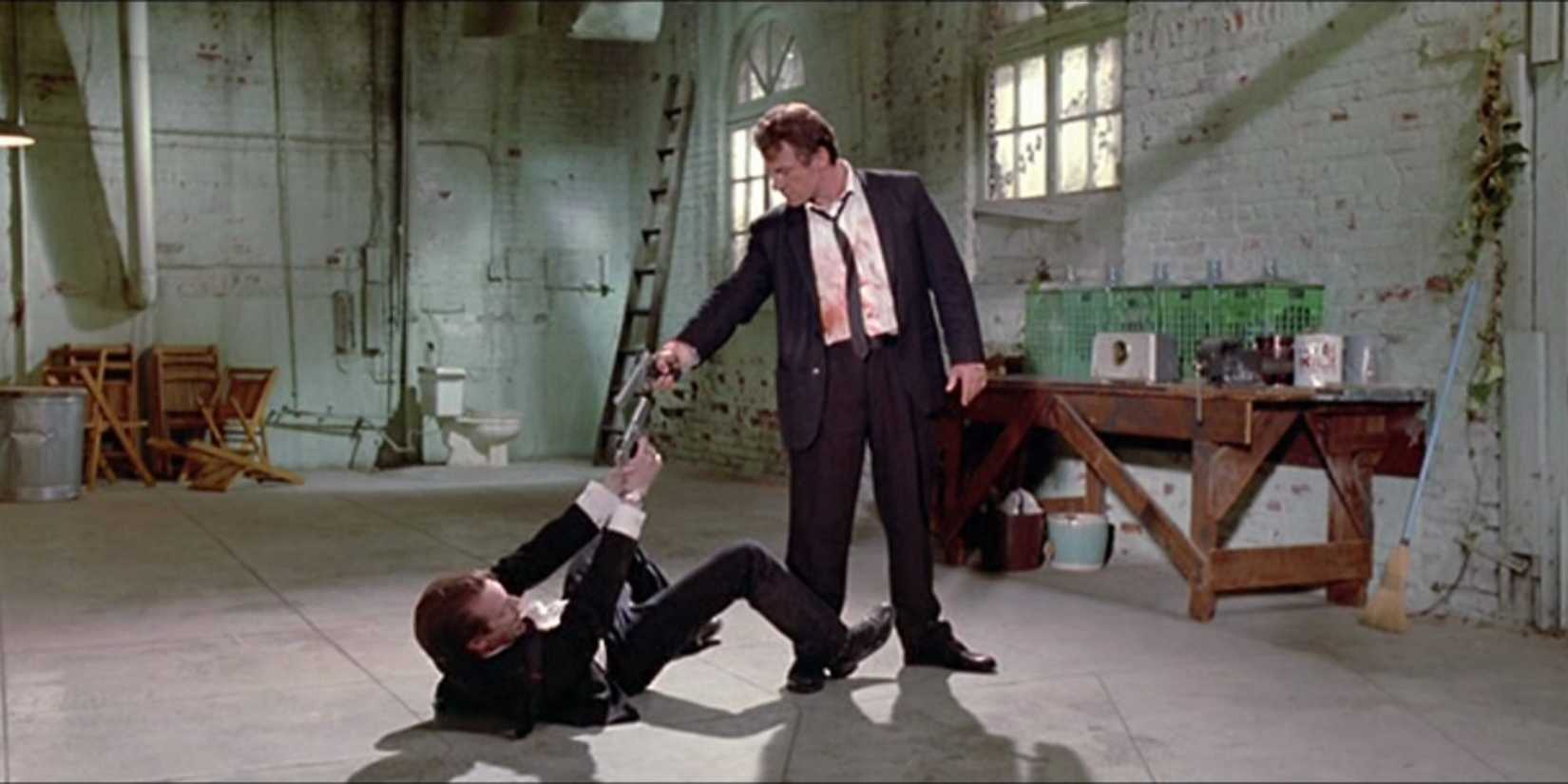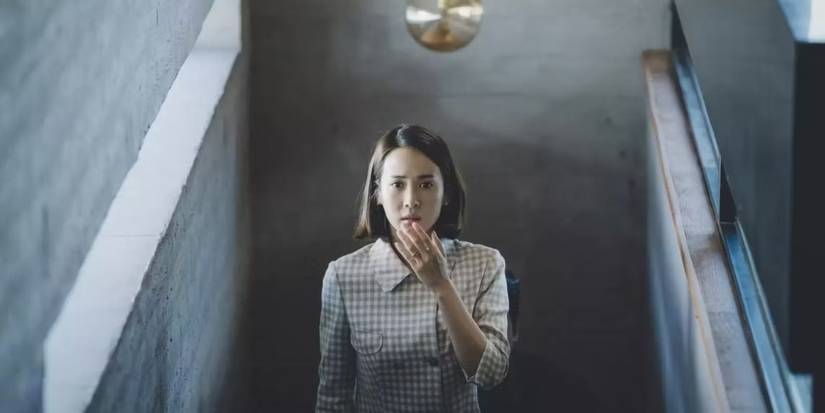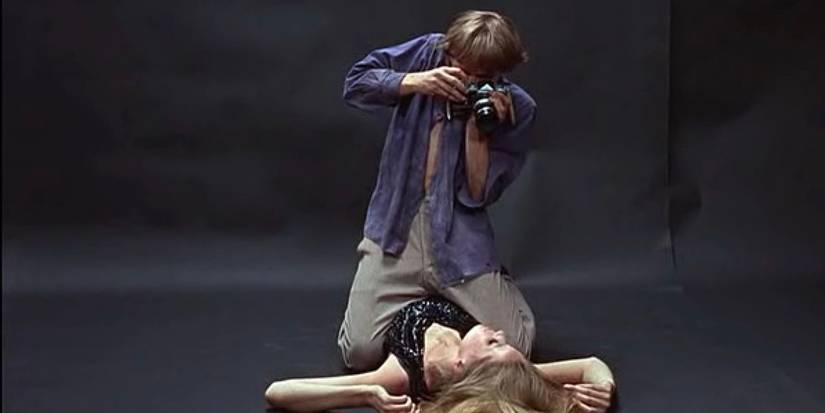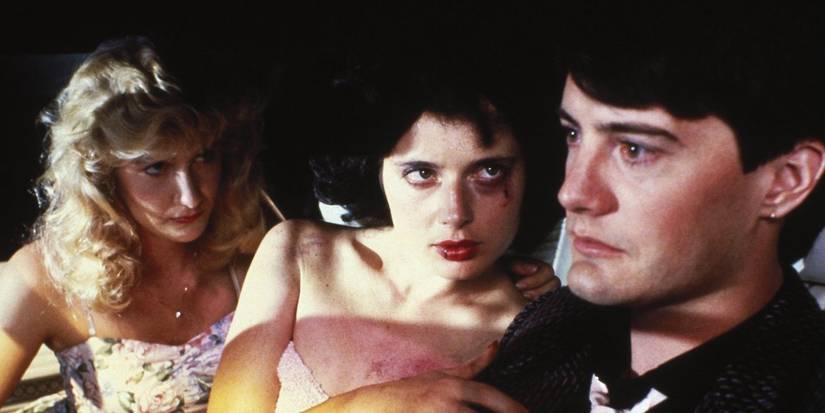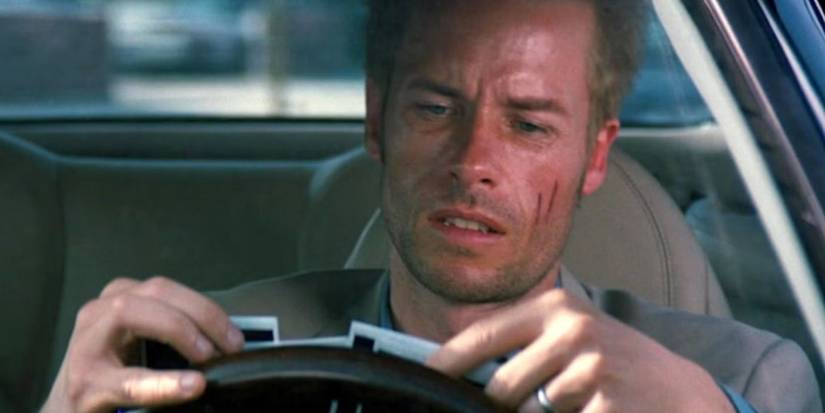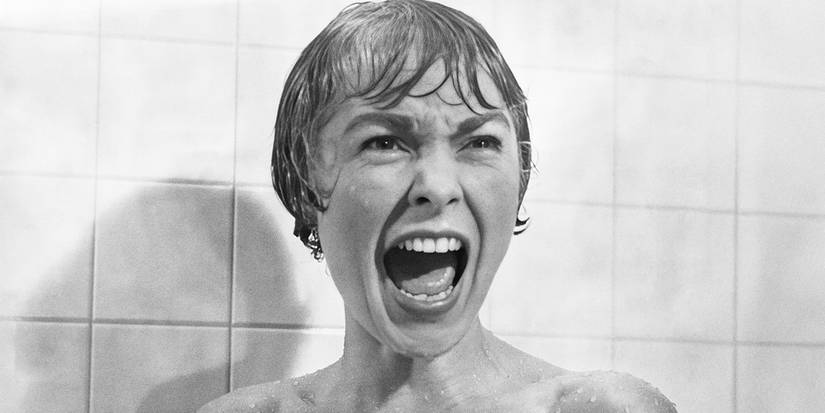10 Most Original Thrillers of All Time, Ranked

Thrillers have always thrived on keeping audiences on the edge of their seats, but the most memorable entries in the genre aren’t just about tension or shocking twists. The best and the most original thrillers are about breaking rules, rewriting formulas, and delivering something no one has seen before. While a good one might grip you with suspense, the truly original thrillers change the entire landscape of cinema, daring to experiment with structure, perspective, or subject matter in ways that change how we watch stories unfold.
From Hitchcock’s genre-bending classics to modern masterpieces that blend social commentary with nerve-shredding tension, these movies are unique pieces of cinema. Some of them might not find their audiences during their original release because of their challenging nature, but they would become darlings of the genre. These ten thrillers broke the mold and reshaped the very definition of what a thriller could be. They will be ranked based on how groundbreaking, experimental, and ultimately successful they were.
10
‘Peeping Tom’ (1960)
Peeping Tom follows Mark Lewis (Karlheinz Boehm), a shy and introverted cameraman who secretly films women as he murders them, using his camera as both weapon and witness. Obsessed with capturing their final moments of fear through the lens of his camera. Mark’s compulsion is rooted in a traumatic childhood. As the police close in while Mark attempts to connect with people around him, his double life begins to unravel.
Michael Powell’s Peeping Tom was way ahead of its time and is one of the most underrated movies of the ’60s. The film was reappraised over a decade after its release, with Martin Scorsese championing its re-release. What makes it so original is its bold premise that the killer isn’t just a voyeur; he’s a filmmaker, and the audience is complicit in his action, making this a meta-commentary on cinema’s voyeuristic nature. Bohm’s performance is highly compelling as both the monster and the victim, and Peeping Tom is influential on many psychological thrillers that followed.
9
‘The Usual Suspects’ (1995)
The story of The Usual Suspects unfolds through the interrogation of Roger “Verbal” Kint (Kevin Spacey), a small-time con man who recounts the events leading up to a bloody shootout at the Los Angeles docks. His tale follows a gang, led by career criminal Dean Keaton (Gabriel Byrne), who assemble for a heist and soon find themselves entangled in the schemes of Keyser Soze, a mysterious, almost mythic crime lord whose existence might be more legend than fact.
The Usual Suspects is highly original in how it uses storytelling. The film’s entire structure is built on unreliable narration, forcing the audience to question every detail and assumption. The performances are a masterclass, particularly from Spacey as the key figure. The real star, however, is Christopher McQuarrie’s Oscar-winning script that ensures every plot development feels earned. The film’s reveal has been replicated and spoofed endlessly, showing how iconic it is. By making the narrative itself the puzzle, The Usual Suspects elevated the thriller into an exercise in perception and truth.
8
‘The Conversation’ (1974)
Francis Ford Coppola’s The Conversation follows Harry Caul (Gene Hackman), a brilliant but reclusive surveillance expert hired to record what seems like an ordinary exchange between a young couple in a busy San Francisco park. Harry prides himself on his technical skill and professionalism, but as he listens and replays the fragmented tapes, he becomes convinced the couple is in imminent danger. Haunted by a past job that ended in tragedy, Harry grows increasingly obsessed with deciphering the recording’s true meaning.
The Conversation sets itself apart from other thrillers by building suspense through ambiguity rather than spectacle. Coppola strips the thriller to its core, using incomplete sound recordings as the source of tension and letting meaning shift depending on interpretation. Gene Hackman delivers one of his best performances, embodying a man consumed by guilt, loneliness, and distrust. Coppola’s direction emphasizes his isolation, framing Harry within empty spaces and using sound design as a narrative engine. The Conversation is a chilling exploration of privacy and morality, and with its unique take on the genre, it is one of the most original thrillers of its time.
7
‘Oldboy’ (2003)
Oldboy follows Oh Dae-su (Choi Min-sik), an ordinary man who is inexplicably kidnapped and imprisoned in a small room for fifteen years without explanation. When he’s suddenly released, Dae-su gets money and clothes and is told to uncover the identity of his captor within five days. Dae-su embarks on a quest for revenge, determined to find out why. Oldboy is directed by South Korean auteur Park Chan-wook and is part of his Vengeance Trilogy.
Oldboy stands out as one of the most daring and audacious thrillers ever made. Its originality lies in its fearless embrace of extremes, from its operatic violence to its gut-wrenching emotional revelations. Choi Min-sik delivers a powerhouse performance, oscillating between vulnerability and madness, while Park’s direction combines balletic fight choreography with lyrical visual storytelling. Oldboy is ingrained in the general audience for its elegant hallway fight that’s been replicated numerous times by Hollywood, as well as its climactic twist. The final twist is not just for shock value, but it deepens the story’s themes of vengeance and cyclical suffering.
6
‘Reservoir Dogs’ (1992)
Reservoir Dogs begins with a group of criminals, all using color-coded fake names for anonymity, who are brought together to execute a simple jewelry heist. But the robbery goes disastrously wrong, leaving several dead and the survivors scrambling to a warehouse hideout. With one of them bleeding out, suspicions rise that someone in the crew is an undercover cop. The film stars Tim Roth, Michael Madsen, and Steve Buscemi as members of the criminal gang.
Quentin Tarantino arrived with a huge splash with his directorial debut. The film stripped down the crime thriller genre to dialogue and tension in a single location. By never showing the heist, Tarantino puts the audience in the room with the same mindset as the criminals, trying to find out what went wrong in their heist. Reservoir Dogs’ nonlinear structure keeps the narrative fresh and disorienting, while Tarantino’s sharp, pop-culture-laced script brings a fresh voice to the movies. With a simple setup but effective execution, the film’s originality lies in its minimalism, reshaping the possibilities of indie movies ever since.
5
‘Parasite’ (2019)
Parasite follows the Kim family, a poor household struggling to make ends meet in Seoul. When their son Ki-woo lands a job tutoring the daughter of the wealthy Park family, the Kims hatch a plan to infiltrate the household, with each family member taking on a role within the Parks’ home under false pretenses. As the Kims fully acquire jobs in the Park household, they also unearth even more shocking secrets in the rich, idyllic home.
Bong Joon-ho’s Parasite is a genre-defying masterpiece that reinvents the thriller genre. Its originality lies in its tonal fluidity, effortlessly blending dark comedy, social commentary, and nail-biting suspense without losing momentum. The film uses its razor-sharp storytelling and fully goes into social thriller territory, especially with its bonkers reveal in the third act. Due to its genre-bending nature, some audiences may argue that Parasite is not a thriller, but that’s exactly what makes it original. Bong’s direction is meticulous, layering visual metaphors and spatial storytelling that deepen the film’s themes of inequality and desperation, and the ensemble cast, led by Song Kang-ho, is operating on another level. By the time Parasite erupts into chaos, it’s clear that its thrills aren’t just about the plot but also the realities that are incredibly close to us.
4
‘Blow-Up’ (1966)
Blow-Up follows Thomas (David Hemmings), a fashion photographer in 1960s London, who spends his days shooting models and drifting through parties in a haze of detachment. One afternoon in a park, he casually photographs a couple, only to later notice something strange in the background of his shots. As he enlarges the images again and again, Thomas becomes convinced he’s stumbled upon evidence of a murder. Yet the closer he looks, the less certain the truth becomes.
Michelangelo Antonioni’s Blow-Up broke new ground by using the framework of a thriller to explore ambiguity and meaning. Instead of offering resolution, the film thrives on uncertainty. This narrative choice was radical, making the thriller less about answers and more about questions. Hemmings captures Thomas’s shift from jaded arrogance to obsessive paranoia, while Antonioni’s direction turns the busy London into a landscape of alienation. The act of blowing up photographs becomes a metaphor in itself, showing how interpretation shapes reality. The film is responsible for influencing many films, including Coppola’s The Conversation and Brian De Palma‘s Blow Out.
3
‘Blue Velvet’ (1986)
Blue Velvet follows a young man in a quiet suburban town named Jeffrey Beaumont (Kyle MacLachlan), who discovers a severed human ear in a field. As he investigates, he becomes entangled with nightclub singer Dorothy Vallens (Isabella Rossellini), a woman trapped in the grip of the sadistic gangster Frank Booth (Dennis Hopper). The deeper Jeffrey delves, the more he’s forced to confront the darkness lurking not just in his town but within himself.
David Lynch’s vision in Blue Velvet is unlike anything that came before it. It is part noir, part surreal horror, part psychological thriller. The originality lies in its tonal dissonance, where idyllic 1950s suburbia collides with grotesque sexual violence and perversion. Dennis Hopper’s performance as Frank Booth is unforgettable, while Isabella Rossellini brings haunting depth to Dorothy. Lynch’s dreamlike direction, filled with symbolic imagery and unsettling sound design, blurs the boundaries between reality and nightmare. Blue Velvet divided critics and audiences at the time, despite giving Lynch a Best Director nomination. The film was eventually reappraised and is now considered a pioneer for pushing the thriller genre into surreal, darker territory.
2
‘Memento’ (2000)
Memento tells the story of Leonard Shelby (Guy Pearce), a man suffering from short-term memory loss after a brutal attack that left his wife dead. Unable to form new memories, Leonard relies on Polaroid photos, handwritten notes, and tattoos etched across his body to piece together clues and track down his wife’s killer. The film’s structure mirrors Leonard’s fractured mind, which is told in reverse chronological order. Each scene ends where the previous one begins, so the audience is just as disoriented and uncertain as Leonard.
Christopher Nolan‘s Memento is undoubtedly original for its experimental structure. By telling the story in reverse chronological order, it also reflects the film’s central theme of the unreliability of memory. This innovative structure transformed what could have been a straightforward revenge tale into a puzzle that keeps viewers questioning what is real, what is manipulated, and whether truth can ever be trusted. Nolan’s precise editing and Guy Pearce’s vulnerable yet driven performance heighten the tension, keeping the film easy to follow despite its complexity. Memento carved out a place as one of the most inventive thrillers ever made, and is the start of Nolan’s obsession with nonlinear editing and the concept of time.
1
‘Psycho’ (1960)
Alfred Hitchcock’s Psycho begins by following Marion Crane (Janet Leigh), a secretary on the run after stealing money from her employer. She goes to town and checks into a remote roadside motel run by a shy, awkward young man named Norman Bates (Anthony Perkins). The film takes a huge turn by killing off Marion midway and turning its lens on Norman, which should not be a spoiler, as the film has been released for 60 years now. The story then follows the investigation into her disappearance and slowly unravels the disturbing truth of Bates Motel.
Psycho is arguably Hitchcock’s most famous work, if not his best. It stands as one of the most groundbreaking thrillers ever made, forever altering the landscape of cinema. Through its daring plot structure and unsettling atmosphere, Psycho transformed the thriller into something darker, more psychological, and far more unpredictable. Hitchcock’s creative choices, not only in the infamous shower scene but in every scene, coupled with Bernard Herrmann‘s piercing score, made Psycho a classic. Its subject matter was deemed too controversial at the time, but its popularity and impact have made the film beloved until today.
